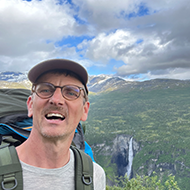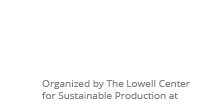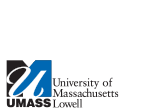A4 Member Spotlight
Summer 2022
Welcome to our first A4 Member Spotlight! Every quarter A4 will be featuring a brief bio on an active A4 member. If you’d like to be featured in a future newsletter, please contact Cathy Rudisill.
 |
DR. DANIEL SLUNGE RESEARCHER & POLICY ENGAGEMENT DIRECTOR, UNIVERSITY OF GOTHENBURG |
Q1: Who do you work for and how long have you been there?
I work as an environmental economist in two centers based at the University of Gothenburg. The FRAM Centre for Future chemical Risk Assessment and Management (www.fram.gu.se) and the Environment for Development Initiative (www.efdinitiative.org).
Q2: What is your educational background and how did you get started in the AA/substitution field?
I have a MsC in economics and a PhD in Environmental management and economics. Already my MsC-thesis (from 1997) was about chemical substitution as I evaluated the effectiveness of the Swedish ban on trichloroethylene. Since we started the FRAM centre in 2016, I have worked a lot on issues related to chemical substitution.
Q3: What compels you to work in the chemical alternatives assessment/informed substitution field?
I am really concerned about the effects of chemical pollution on health and our ecosystems. As we are relatively few economists doing research in this field (in comparison with climate change), many authorities have shown interest in our findings. That is also a compelling reason!
Q4: What interesting projects are you working on currently related to alternatives assessment/informed substitution and lessons from them that you would like to share?
I lead a research project called Incentivize where we study the effects of taxes and information related to chemicals of concern in consumer products. I developed this project after having participated in a Swedish governmental inquiry on taxation of hazardous chemicals in clothes and shoes. A challenge faced by the inquiry was that very little research has been conducted on chemical taxation.
Q5: How do you think your research contributes to growing the field of Alternatives Assessment/informed substitution?
In general, I think economists and other social scientists can contribute with knowledge about institutions, politics and behavioral change. Such research can be important addition to a field dominated by natural scientists and engineers.
Q6: Have you recently published an article, received an award, or completed a project you'd like to highlight?
We just published the paper “REACH authorisation and the substitution of hazardous chemicals: The case of trichloroethylene ( Journal of Cleaner Production, https://doi.org/10.1016/j.jclepro.2022.132637), where we show that many European companies have substituted from TCE to Perchloroethyene, which is at best only a marginal improvement. The case illustrates the problem with instruments focusing on one chemical at the time, and we argue for broader approaches addressing groups of chemicals and for the use of fees in combination with permits or bans. I have also recently been involved in reviews for the Department of Toxic Substance Control in California and the OECD on the potential to increase the use of economic instruments to incentivize substitution of chemicals of concern.
Q7: What do you enjoy doing in your free time?
I like being outdoors, the Norwegian mountains is my favorite spot both during winter and summer.
Q8: How do you get value from participating in A4 and how can A4 more effectively support growth in the field?
I always learn a lot from interacting with actors outside academia. Such interaction is essential if you want to conduct policy relevant research. I would encourage A4 to reach out more to social and behavioral scientists. Substitution is about behavioral change of individuals and organizations, and we need to learn more about specific instruments that can create the larger changes needed to drastically reduce chemical pollution.


